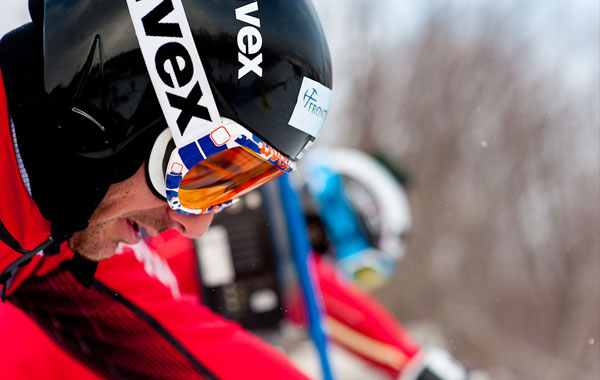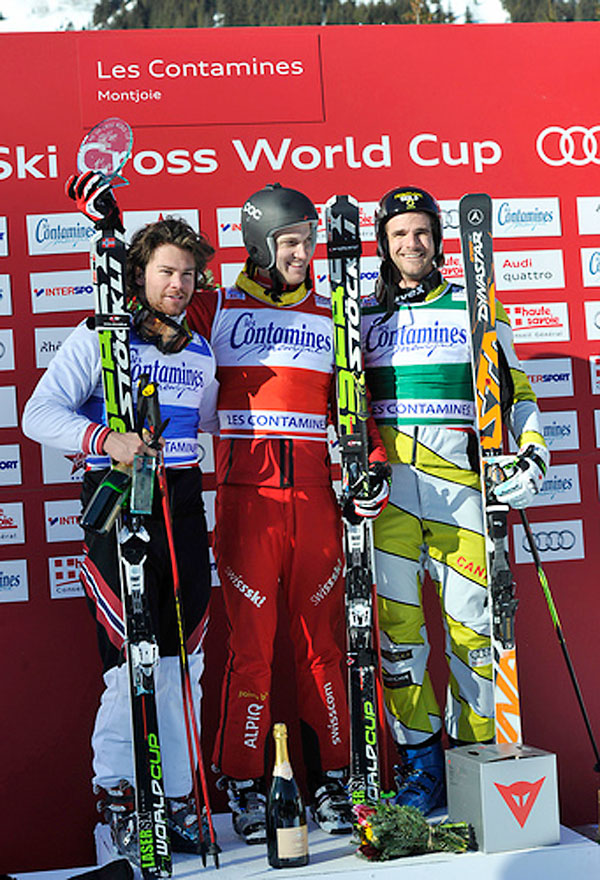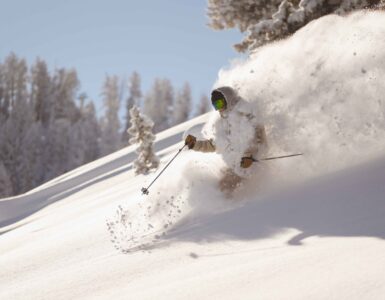Nick Zoricic, of Toronto, has died after crashing heavily in a World Cup skicross race in Switzerland.
Zoricic, 29, suffered fatal head injuries when he collided with safety nets at the side of the course after going wide over the final jump.
Organisers abandoned the Grindelwald event after Saturday’s incident.
It is the second tragedy to stun Canadian sport recently following freestyle skier Sarah Burke’s death after a training accident in January.
Television pictures showed Zoricic fell through the nets as his skis and poles were thrown clear.
He was treated on the course before being airlifted by helicopter to hospital for further treatment.
NICK ZORICIC FACTFILE
Born: 19 February 1983
First FIS World Ski Championships start: 19 January 2009
FIS World Cup starts: 36
FIS World Cup podiums: 2
The International Ski Federation [FIS] confirmed Zoricic died from his injuries at 1135 GMT.
A statement from the governing body said: “Nick Zoricic fell heavily just before the finish in the round of eight, crashing directly into the safety netting and thereafter lying motionless.
“The organising committee, FIS and [event organisers] Swiss Ski express their deepest condolences to the family and friends of Nick Zoricic and the Canadian ski team.”
Zoricic raced on the World Cup circuit for more than three years after beginning his career as an alpine skier.
He finished eighth in the 2011 World Championships held in Utah, United States.
“It’s devastating,” Max Gartner, President Alpine Canada, said in a sometimes emotional teleconference Saturday. “We look at all our athletes as members of our family. It’s hard.”
Zoricic played competitive tennis until he was 15 before giving way to ski racing. He toiled for years as an alpine racer with the Craigleith Ski Club. Son of alpine coach Bebe Zoricic and Silvia Brudar, he was born in Sarajevo, moving with his family to Toronto at the age of 5. But he never cashed in on his alpine potential. He registered a handful of solid Nor-Am alpine results, but three knee surgeries in three years derailed his alpine ambitions.
Gartner added, “I was fortunate to know Nik quite well from his alpine days. His dad is a famous ski coach who has produced many top racers. Nik was like a model athlete — an extremely dedicated, quiet young man who has gone about his business and found his home in ski cross. It was a pleasure to work with him and know him.”
“The ski world is like one big family and particularly in the sport of ski cross we’re a very tight-knit crew,” said Canadian Olympic gold medallist Ashleigh McIvor on a conference call. “In our sport the men and the women travel together so those guys are like my brothers and the girls my sisters … so this is just absolutely horrible.”
McIvor responded to media questions regarding safety with caution.
“The fact is there are risks associated with our sport and really pretty much everything I do in life,” she said. “We are probably just as safe in our sport as we are driving down the highway.
“I don’t think any fingers should be pointed at any of the organizers or anything like that. The fact is we do these sports because we love them and there are risks associated with them and there’s only so much that can be done to minimize those risks.
“At every single event (FIS) steps in they overdo it in making the course safer. The course builder will build a course that we all look at and think it would be fun. But then FIS does their absolute best to make it safe, to the point that the athletes say ‘I thought this was going to be fun.’ ”














